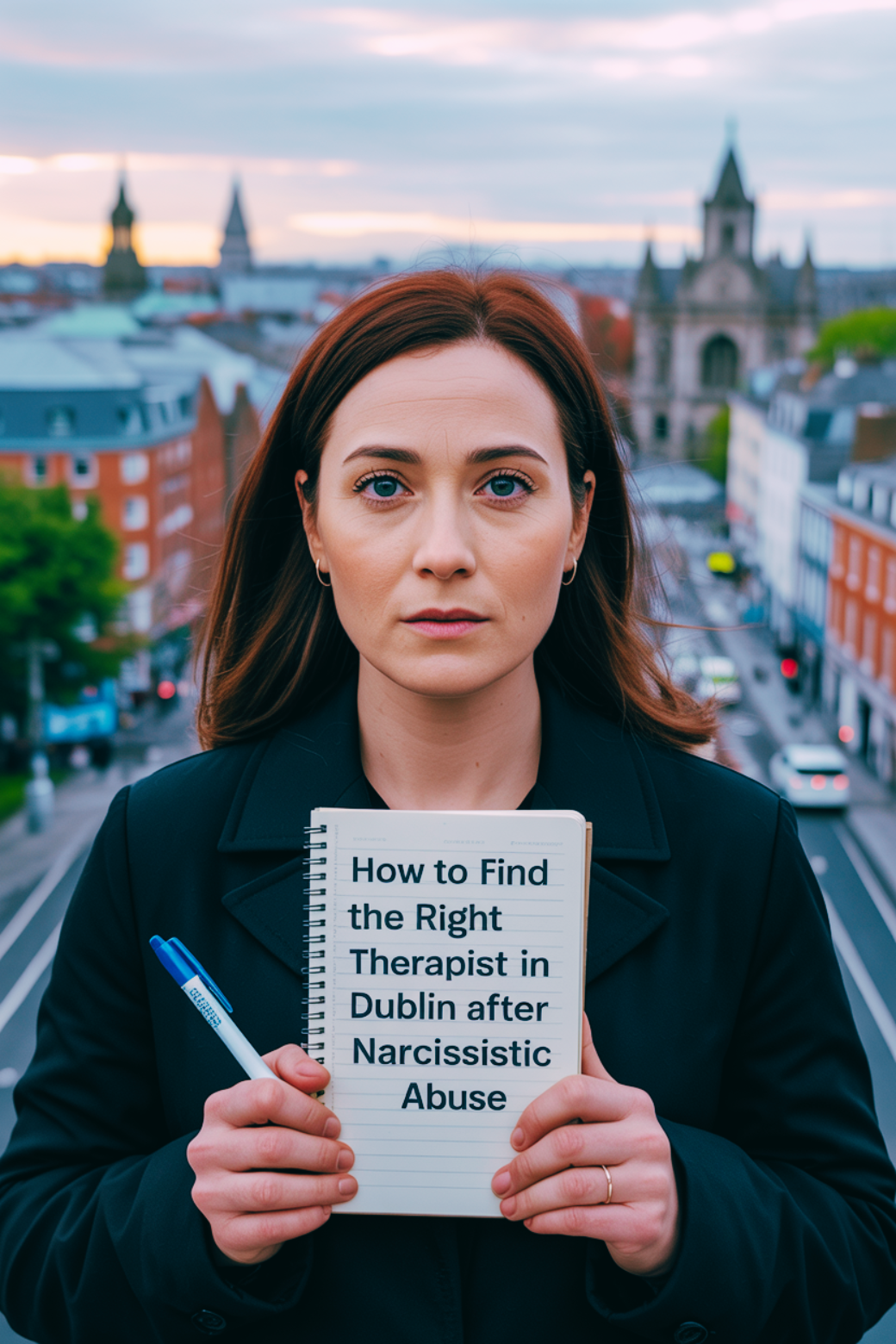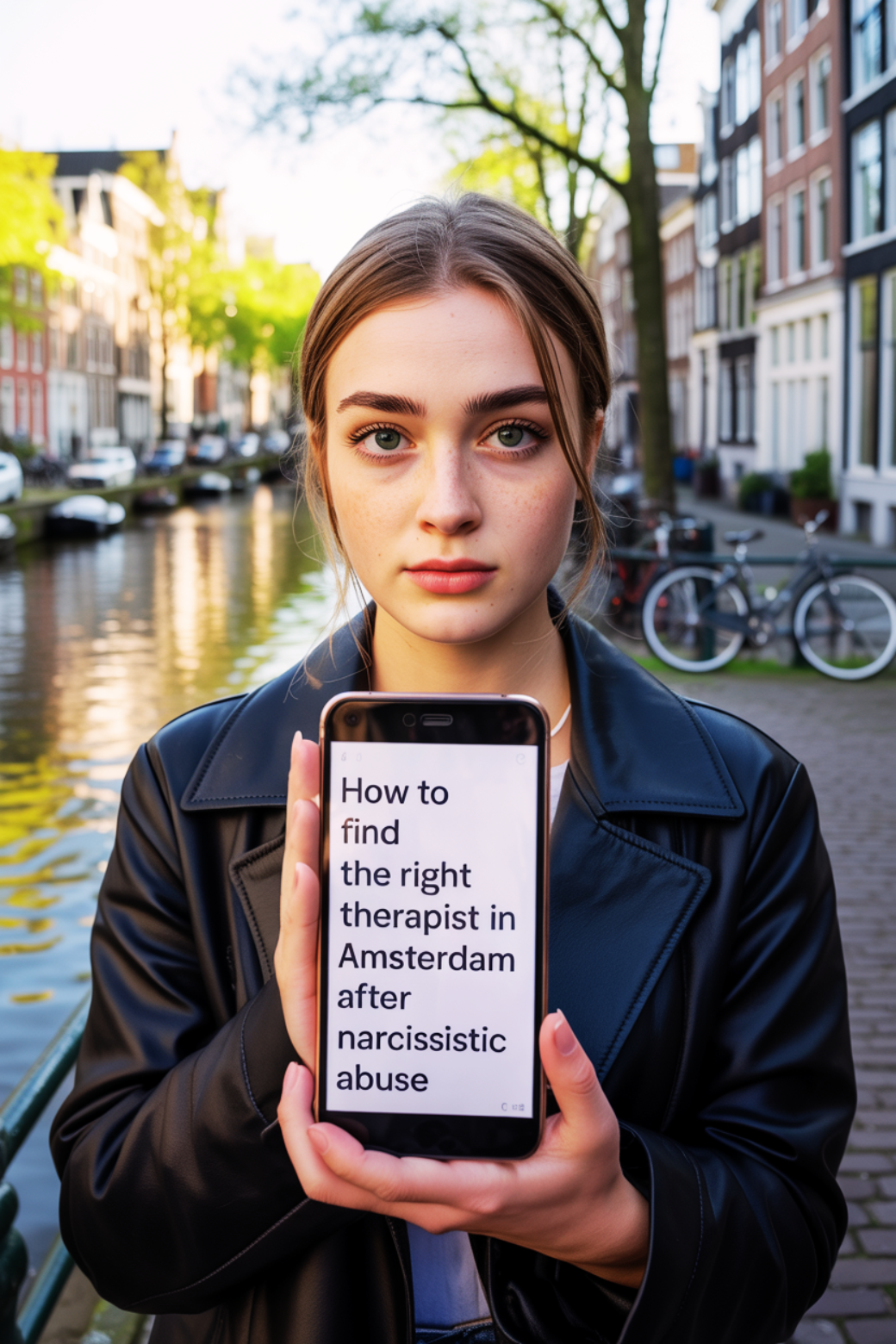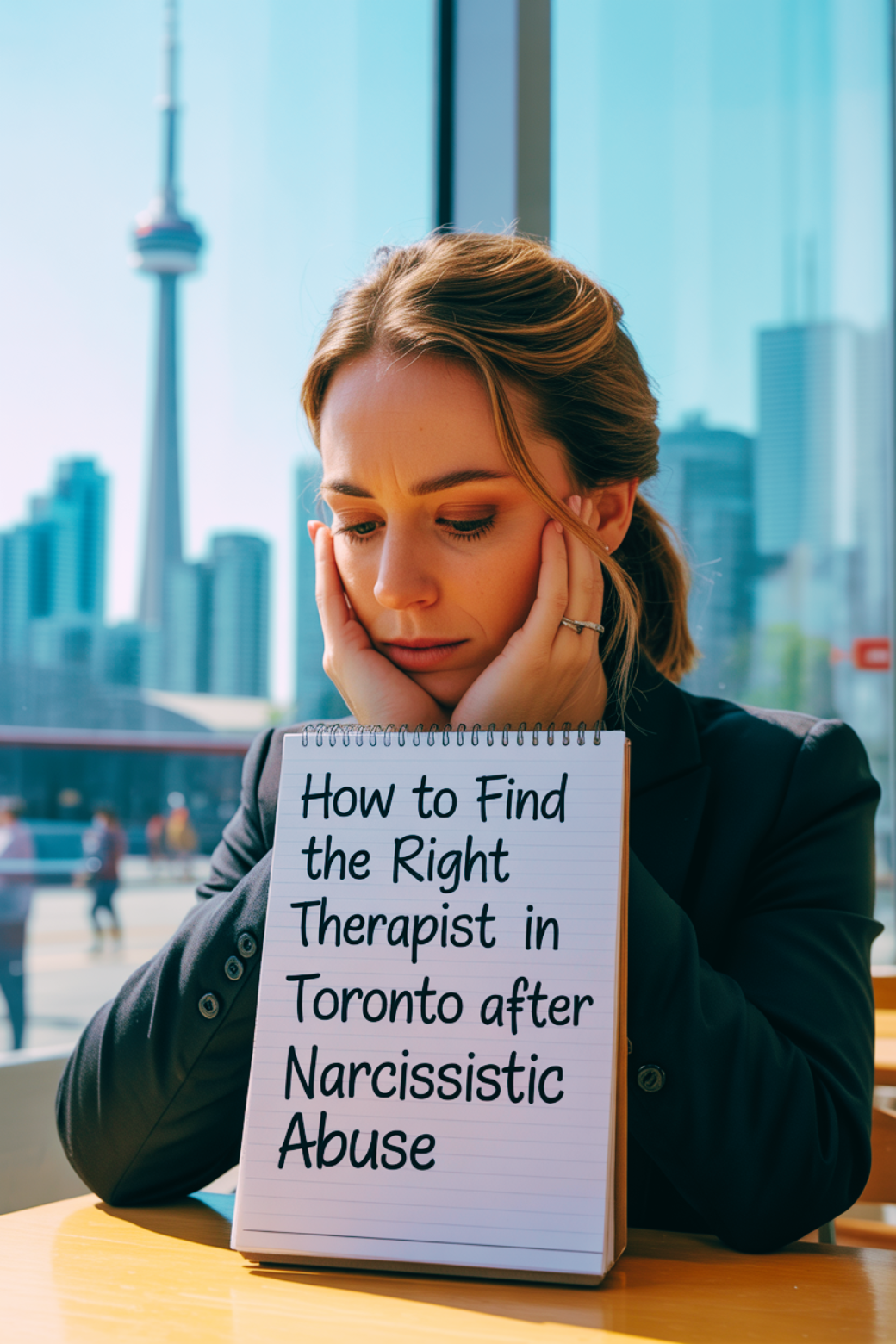Now Reading: How to Find the Right Therapist in Dublin After Narcissistic Abuse
- 01
How to Find the Right Therapist in Dublin After Narcissistic Abuse

How to Find the Right Therapist in Dublin After Narcissistic Abuse
🇮🇪 How to Find the Right Therapist in Dublin After Narcissistic Abuse
A Real Recovery Guide for Survivors in Ireland’s Capital
Dublin is full of therapists — but not all are equipped to help you unpick the psychological knots left by narcissistic abuse. You don’t need generic “relationship help.” You need deep repair. You need someone who gets what it means to be gaslit, broken down, confused, isolated, and trauma-bonded — often while looking totally “fine” on the outside.
This is your full guide to finding real, affirming help in Dublin — whether you’re just waking up to what happened, or deep in the fog of what comes after.
🛑 Not All Therapy in Dublin Is Safe for Survivors
Let’s name the problem: in Ireland, mental health services are improving, but many still rely on outdated models — especially when it comes to emotional abuse.
Here’s what survivors often run into:
- Therapists who don’t understand NPD or covert abuse
- Quick pressure to forgive, co-parent, or “look at your part”
- Shallow CBT models that skip identity healing entirely
- A focus on symptoms (anxiety, depression) instead of why they’re there
You deserve more than that. You deserve healing that starts from where you are — confused, hurt, maybe even still doubting yourself — and walks forward.
🧠 What Makes a Therapist Survivor-Aware in Dublin?
✔️ Understands narcissistic traits and manipulation patterns
✔️ Doesn’t push neutrality at the expense of your truth
✔️ Uses EMDR, IFS, Schema, or trauma-informed CBT
✔️ Will name abuse when it shows up — without minimizing it
✔️ Supports boundary rebuilding, nervous system regulation, and self-trust
🧩 Ask These 10 Questions Before You Commit
Even if you find a friendly, qualified therapist — that doesn’t mean they understand narcissistic abuse. These questions will help you sort the supportive from the dismissive.
- Do you have experience supporting clients who’ve been through narcissistic or psychological abuse? If they say “I work with trauma,” push further. Do they understand coercive control, gaslighting, triangulation?
- What’s your process for helping survivors rebuild trust in themselves after emotional manipulation? You want grounding, memory reconnection, emotional validation — not just “positive thinking.”
- Which therapy modalities do you use for complex trauma? Look for EMDR, Internal Family Systems (IFS), Schema Therapy, or somatic work. Not just CBT.
- Can you help me recognize manipulative patterns I might not be fully clear on yet? A trauma-informed therapist will help name what happened — without rushing you.
- How do you support survivors with long-term boundary collapse? They should mention psychoeducation, practice tools, and nervous system repair.
- If I say I feel ashamed for staying in a harmful relationship, what would you say? They should reference trauma bonding, emotional survival, and safety — not blame or shame.
- How do you help people who are hyper-independent and terrified of abandonment? That tension is real. They should talk about relational repair and gradual trust-building.
- How do you handle feedback or disagreement in therapy? This reveals whether they’re collaborative or rigid.
- Do you work long-term with clients, or is your practice short-term focused? Ireland often favors short-term care — but deep trauma often needs more time.
- Do you offer tools or reflections for between sessions? Journaling prompts, nervous system exercises, and trauma education are all green flags.
🏥 Ireland’s Mental Health System — And How It Works in Dublin
🇮🇪 Public Care (HSE – Health Service Executive)
Accessing therapy:
- Start by contacting your local GP
- You may be referred to Primary Care Psychology or a local Mental Health Team
- Services are free, but waiting lists can be long (weeks to months)
Limitations:
- Often limited to CBT
- Sessions may be short-term or capped
- Not all professionals are trauma or abuse-informed
💼 Private Survivor-Informed Therapists in Dublin
These practices and professionals are better aligned with complex trauma and narcissistic abuse recovery:
1.
The Trauma Centre Dublin (City Centre)
- EMDR, IFS, somatic trauma support
- Strong experience with emotional and relational trauma
- thetraumacentre.ie
2.
Turning Point Psychotherapy
- Relational trauma focus, long-term therapy available
- Mix of integrative and person-centered approaches
- Works with identity loss, CPTSD, boundary trauma
3.
The Therapy Institute
- Range of modalities including psychodynamic, IFS, schema
- Several therapists trained in covert abuse patterns
- English-speaking and discreetly located
4.
Affinity Therapy (for women and survivors of abuse)
- Focus on emotional abuse, power dynamics, and survivor-centered therapy
- Also offers trauma-informed coaching and advocacy support
🌐 Online Therapy Options Accessible in Dublin
- MyMind.ie – Affordable online and in-person therapy across Ireland
- TherapyHub.ie – Connects Irish residents with licensed therapists
- BetterHelp (International) – Offers flexible sessions; some therapists specialize in narcissistic abuse
- Harley Therapy (UK & Ireland) – High-end therapists, some with trauma and abuse specialization
🧭 Local Survivor Resources in Dublin
- Women’s Aid Ireland – Emotional and legal support for those in abusive relationships
- SAFE Ireland – National network for survivors of domestic and psychological abuse
- One in Four – Support for adult survivors of childhood and systemic abuse
- Dublin Rape Crisis Centre – Offers crisis support, trauma therapy, and advocacy
⚖️ Final Thoughts: Healing in Dublin
Narcissistic abuse strips you of certainty — in your memories, your emotions, your self-trust. Finding the right therapist isn’t just about talking. It’s about recovering your reality.
In Dublin, you can find that kind of support — but you’ll need to look past the “just talk it out” approach.
You need someone who says:
“Yes, that was abuse. Yes, it was real. And no, it wasn’t your fault.”
Because your healing doesn’t start when you leave them.
It starts the first time you hear someone say:
“You’re not crazy. You’re coming back to life.”















